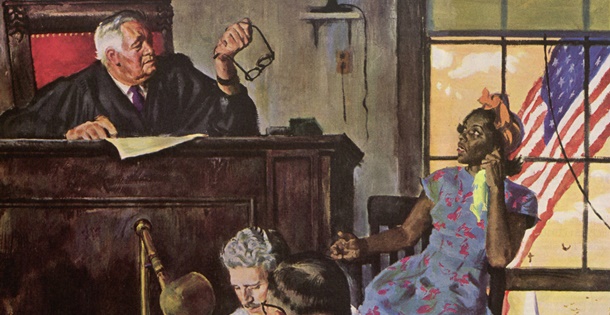
Page Description
Explore how personal conscience shapes justice, exposing the tension between ethical responsibility and institutional authority, and its impact on fairness.
Justice Beyond Laws: The Moral Duty of Conscience
Justice is more than a set of rules or a system of laws – it is a moral endeavor shaped by the actions and decisions of individuals. Yet, what happens when those entrusted with upholding justice allow their conscience to waver, or worse, ignore it altogether?
This page delves into the critical role of conscience in the pursuit of justice, exploring how personal ethics guide – or fail to guide – those working within systems of power. From judges and lawyers to police officers and public officials, every decision carries weight, with the potential to uplift or devastate lives.
We will examine how a lack of moral accountability can lead to systemic failures, wrongful convictions, and lasting harm. Through real-life examples and reflections, we aim to uncover the profound connection between justice, conscience, and humanity’s shared responsibility to do what is right.
Gerechtigheid is meer dan de wet: De Morele Plicht van het Geweten
Gerechtigheid is meer dan een verzameling regels of een systeem van wetten – het is een morele onderneming, gevormd door de keuzes en daden van individuen. Maar wat gebeurt er als degenen die verantwoordelijk zijn voor het handhaven van gerechtigheid hun geweten laten wankelen, of erger nog, het volledig negeren?
Deze pagina belicht de cruciale rol van het geweten in de zoektocht naar gerechtigheid. We onderzoeken hoe de ethiek van mensen binnen machtssystemen – van rechters en advocaten tot politieagenten en overheidsfunctionarissen – kan inspireren of juist falen. Elke beslissing heeft gevolgen en kan levens verbeteren of verwoesten.
We analyseren hoe een gebrek aan morele verantwoordelijkheid kan leiden tot systeemfouten, onterechte veroordelingen en blijvende schade. Met praktijkvoorbeelden en reflectie willen we de diepe verbinding blootleggen tussen gerechtigheid, geweten en de gedeelde menselijke verantwoordelijkheid om het juiste te doen.
Introduction
-
Conscience as the Foundation of Justice:
The justice system relies on the assumption that its actors – judges, lawyers, police officers, and experts – act with integrity and a sense of fairness. Conscience should guide their decisions, ensuring they remain accountable to truth and justice, not just to procedure or institutional loyalty. -
When Conscience Fails:
- Gareth Jenkins and the Post Office Scandal:
Jenkins, as an expert, knowingly misrepresented or withheld critical facts about the flawed Horizon system. Instead of aiding the court to uncover the truth, he became an active participant in perpetuating wrongful convictions. His actions are not just a failure of competence but a betrayal of conscience. - Police Misconduct:
In many cases, officers fabricate evidence, pressure witnesses, or ignore exculpatory information, fully aware of the consequences for the accused. This behavior suggests a systemic cultural issue where the “end justifies the means,” eclipsing individual conscience.
- Gareth Jenkins and the Post Office Scandal:
-
Consequences for the Vulnerable:
The failure of conscience has catastrophic effects:- Existential Despair: Wrongfully convicted individuals face financial ruin, societal ostracism, and psychological trauma.
- Ripple Effects: Families and communities of the accused also suffer, losing trust in the justice system and often facing their own stigmatization.
- Erosion of Trust: When those in power act without conscience, the public’s belief in the justice system is profoundly shaken.
Why Does This Happen?
Systemic Pressures:
- Performance Metrics: Police and prosecutors may prioritize convictions over truth to meet quotas or gain recognition.
- Institutional Loyalty: Fear of exposing flaws within a system leads individuals to suppress their conscience to protect their organization.
- Cultural Norms: In some environments, the culture implicitly condones or even rewards unethical behavior as long as it secures a “win.”
Personal Motivations:
- Career Advancement: Individuals may act unethically to secure promotions or accolades.
- Fear of Repercussions: Whistleblowers often face retaliation, deterring others from acting on their conscience.
- Moral Disengagement: People rationalize their actions, convincing themselves that they are justified or that the harm caused is minimal.
Systemische Druk:
- Prestatiemaatstaven: Politie en aanklagers kunnen veroordelingen boven de waarheid stellen om quota te halen of erkenning te verkrijgen.
- Institutionele Loyaliteit: De angst om gebreken binnen een systeem bloot te leggen, zorgt ervoor dat individuen hun geweten onderdrukken om hun organisatie te beschermen.
- Culturele Normen: In sommige omgevingen wordt een cultuur impliciet geaccepteerd of zelfs beloond die onethisch gedrag toestaat, zolang het een “overwinning” oplevert.
Persoonlijke Motivaties:
- Carrièrevooruitgang: Individuen kunnen onethisch handelen om promoties of onderscheidingen veilig te stellen.
- Angst voor Repercussies: Klokkenluiders krijgen vaak te maken met represailles, wat anderen ontmoedigt om naar hun geweten te handelen.
- Morele Uitschakeling: Mensen rationaliseren hun daden door zichzelf te overtuigen dat ze gerechtvaardigd zijn of dat de schade minimaal is.
Exploring Solutions
Promoting Ethical Accountability:
- Strengthen Oversight: Independent bodies must regularly audit actions within police and judicial institutions to identify unethical behavior.
- Empower Whistleblowers: Protect and incentivize individuals who expose systemic wrongdoings.
- Conscience Training: Develop programs to remind justice professionals of their ethical obligations and the human cost of their decisions.
Cultural Shifts:
- Humanizing the Accused: Training to see defendants as individuals, not just case numbers or adversaries, could foster empathy and ethical behavior.
- Transparency: Open reviews of controversial cases can deter unethical practices by making misconduct visible.
Sanctions and Deterrents:
- Professionals like Gareth Jenkins should face significant consequences for deliberate actions that harm others. Holding such individuals accountable sends a clear message about the gravity of these violations.
A Call to Conscience
The ultimate question is: How can a society ensure that conscience remains at the heart of justice? Without it, the legal system becomes a mechanism for oppression rather than fairness.
- Those within the system must constantly ask themselves: Are their actions serving justice or serving power?
- The public must demand accountability and transparency, ensuring that justice systems reflect the values they claim to uphold.